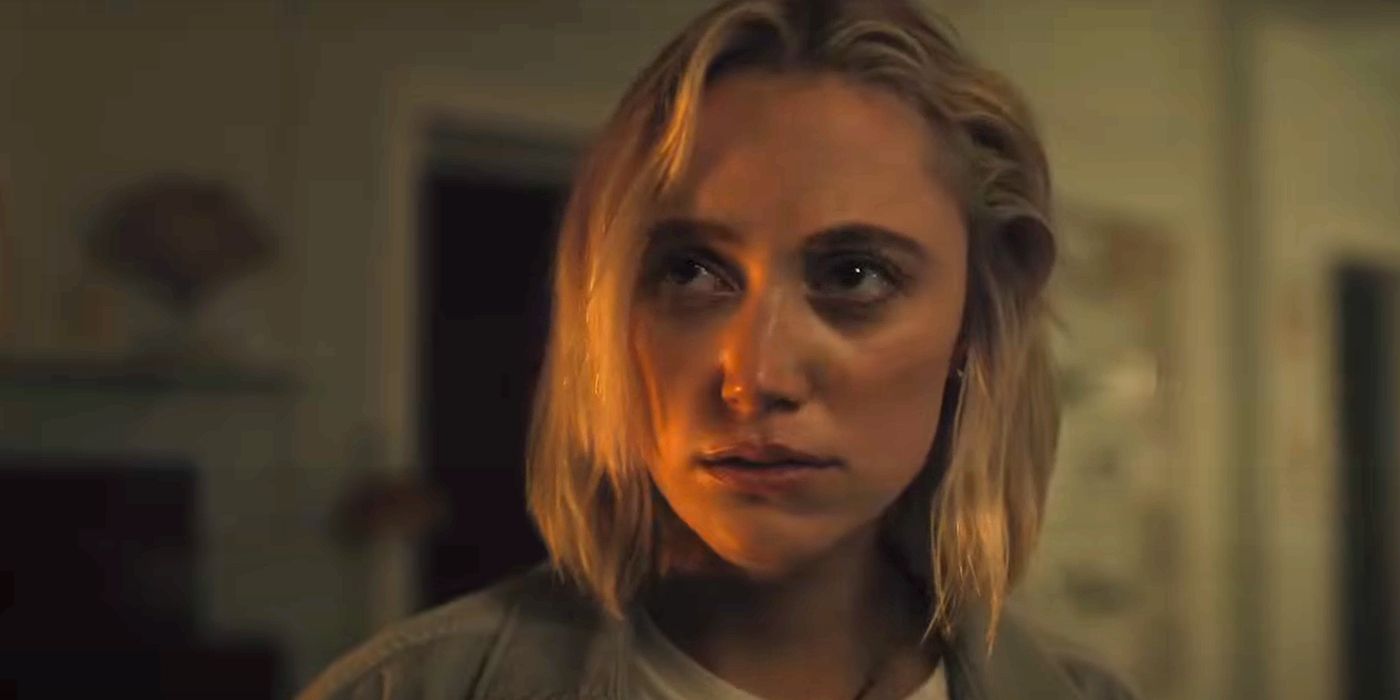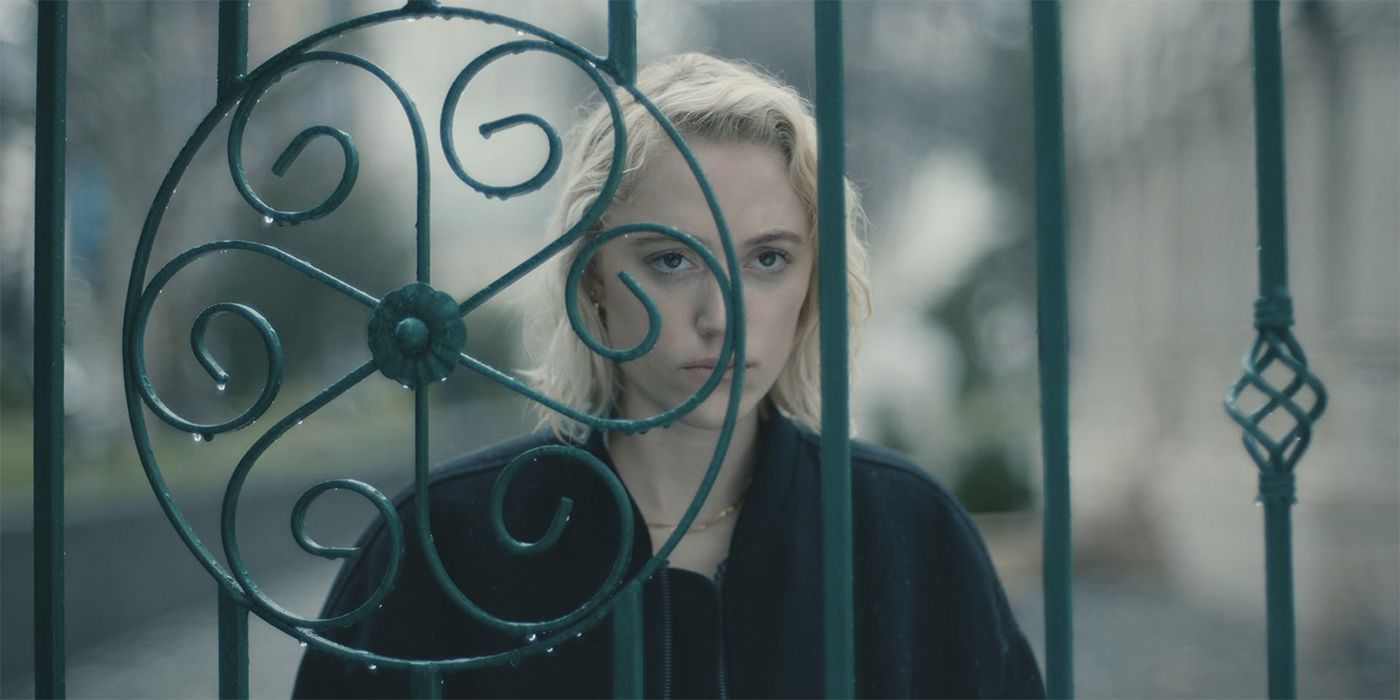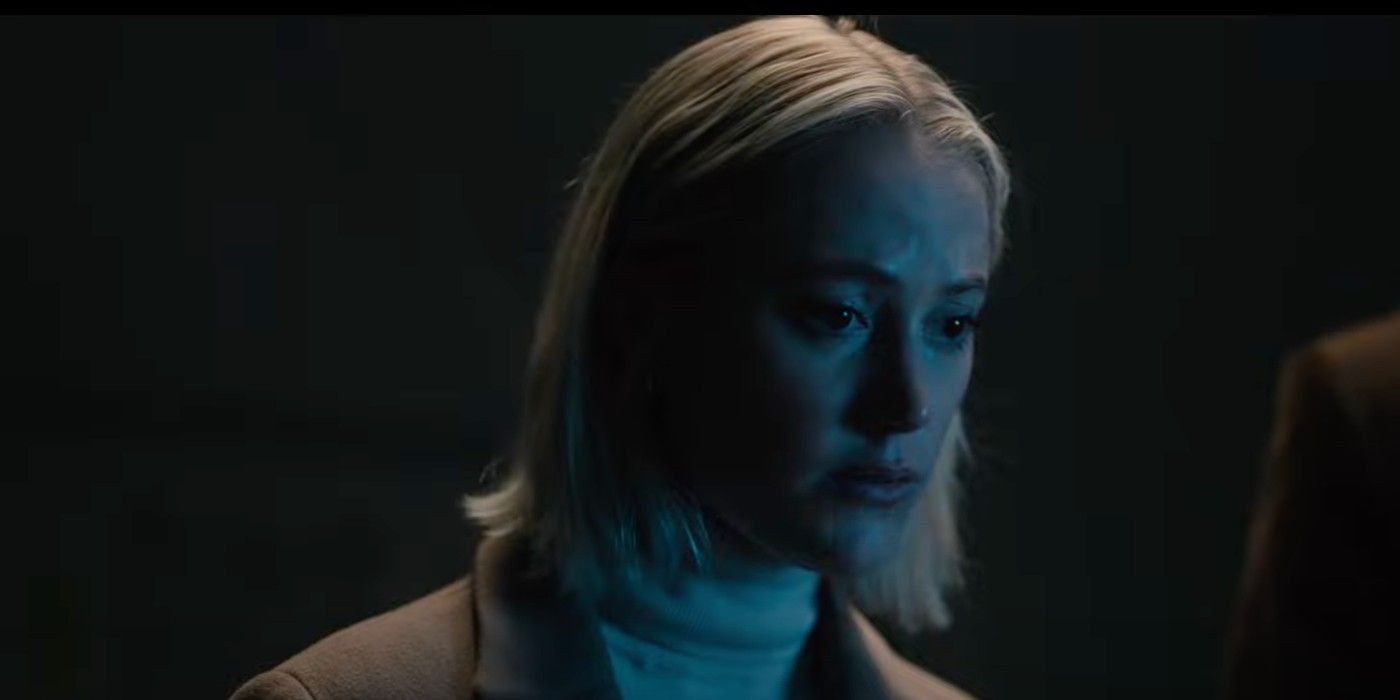Editor's note: The following contains spoilers for Watcher. Sometimes the most terrifying aspect of a horror film is not the looming threat of violence, but the apathy of those close to us who ignore the coming danger. This is the prevailing impact of the unsettling and arresting feature debut Watcher from writer-director Chloe Okuno. Finally getting a wide release this Friday after first getting buzz at Sundance, it is a lean, mean, and tense experience that marks the arrival of a new and vibrant directorial voice. It is a precise and methodical film, crafting a suffocating sense of fear over a tight 90 minutes. It also is, to the chagrin of many who first saw it at the festival, rather predictable. However, what many felt was a flaw is actually its most enduring strength. It makes for a patient film that finds terror not in the spectacle of shock, but in the grim progression of the inevitability.
It is all centered around Maika Monroe's Julia, a former actress who has just moved to Bucharest with her boyfriend where he has gotten a job. This exciting change in her life is suddenly thrown into chaos when she discovers that she is being watched by an ominous stranger from across the street. Making matters worse, there is the growing word of a serial killer who is targeting women in the city. Left alone while her boyfriend goes to work, the toll of the isolation and terror begins to wear Julia down. Even when she tries to take her mind off things by going to the movies, which is notably playing the 1963 stalker film Charade, she discovers that she is being followed. The dread continues to build and build, pulling you deeper into the alarming sense that something is very wrong.
As she tries to convince everyone around her that something is amiss, it all goes ignored. Even her boyfriend disregards and belittles her, making for an experience that ratchets up the tension along with the frustration as we want to practically shout at the screen for the characters to acknowledge the danger. While a common element in horror involves the fears of a protagonist in danger being dismissed, Watcher dials this up to a breaking point of anxiety. No matter how clearly things are going wrong, everyone around Julia just constructs a narrative that can wave away the quietly dire sequence of events.
A man followed you into a grocery store and stared you dead in the face when you tried to hide in the back? Well, he was probably just looking at you because you were looking at him. No matter how implausible and cruel such reductive statements become, they just keep coming. Unsurprisingly yet infuriatingly, the police don’t take her seriously either and even cast blame on her for everything that is going on. One would say that this is a prime example of gaslighting, though even that doesn’t feel like enough of a descriptor as the film becomes an inferno of disbelief that threatens to consume us along with Julia.
When we imagine serial killers, we tend to think of them as ingenious masterminds who are able to escape accountability because of their superior intellect. How else could they get away with it for so long? The truth is that serial killers are able to operate because they target victims that no one cares about or believes when they come forward. The fact that everything Julia is experiencing in Watcher turns out to be true doesn’t cheapen the experience. There is a tendency to want big shocks and twists in horror, upending everything we’ve seen thus far. What can be more disquieting is when there is no big puzzle or mystery to solve. Instead, the killer was who we thought it was all along and he still was almost able to escape.
Julia, even as everyone cast doubt on her fears, was spot on in identifying the danger down to the very person who is going around killing women. Yet she still has to fight them off alone, an unnecessary crisis that could have been addressed far sooner had anyone actually taken a moment to listen to her. That this all could have been prevented without lives being lost makes it all the more tragic in how totally it overwhelms you. The answers were all there from the very beginning, leaving us with an outcome that was predetermined yet no less upsetting. When Julia walks out into the hall for the last time, there is a combination of both catharsis at finally people seeing what happened and a wave of anger that it took this long.
The predictability of the story is not a bug, but a feature. It makes explicit how, no matter how clear the danger is, the real fear comes from the ambivalence of others. It exposes the complicity of those that actively choose not to believe people even when the truth is staring them directly in the face. To treat the last act of the film as a “reveal” in the conventional sense is to misunderstand the delicate portrait that Okuno was painting up until then. It would only feel lackluster if you treat the film as something to be solved. The reality is it was “solved” right away, a glaring truth that is devastating when you reflect back on the story.
The delicate pan around a corner to show the consequences of this ignorance is not about the spectacle of it as it instead presents the reality we knew along with a fearsome frankness. While there are certainly films that work when they pull the rug out from under us, Watcher succeeds by throwing us on the floor from the opening moments while having everyone pretend we are still standing and that everything is fine. It creates an unnervingly effective experience that drags out every ounce of tension possible in its abundantly simple story.



